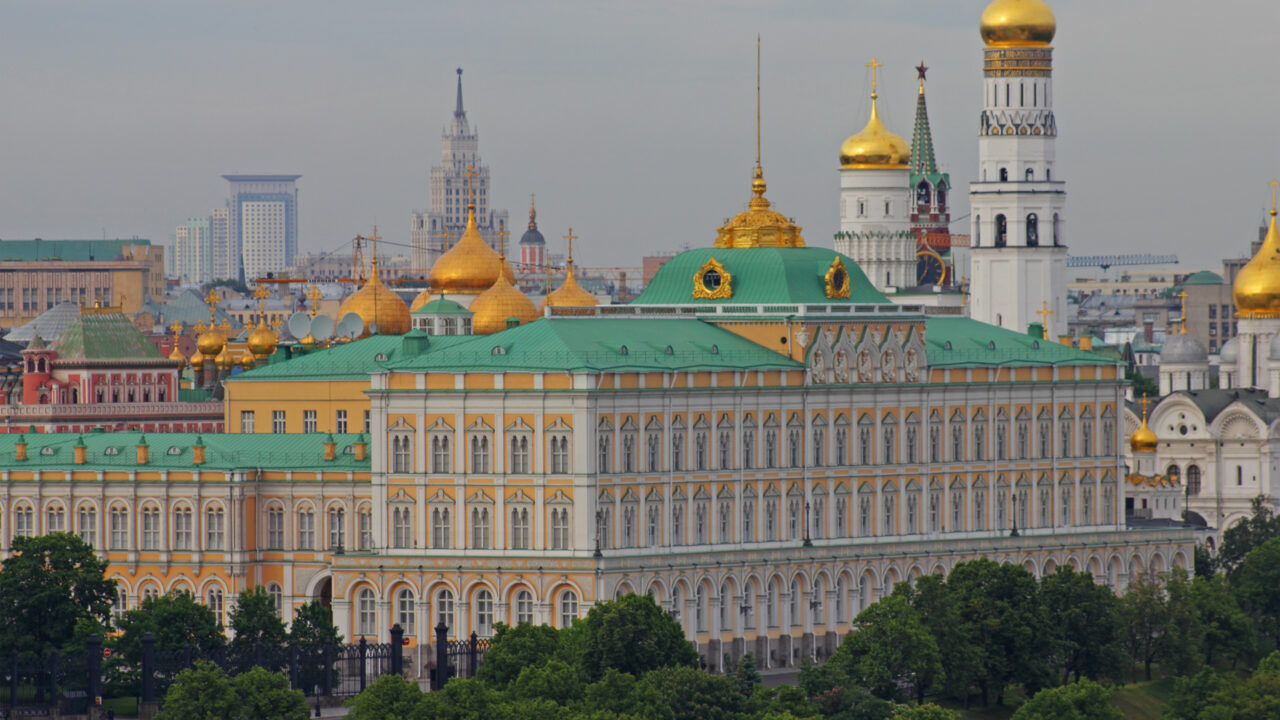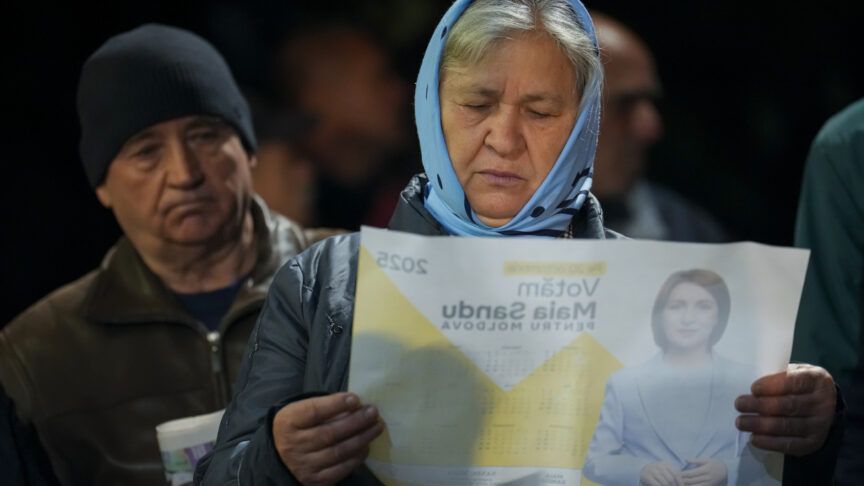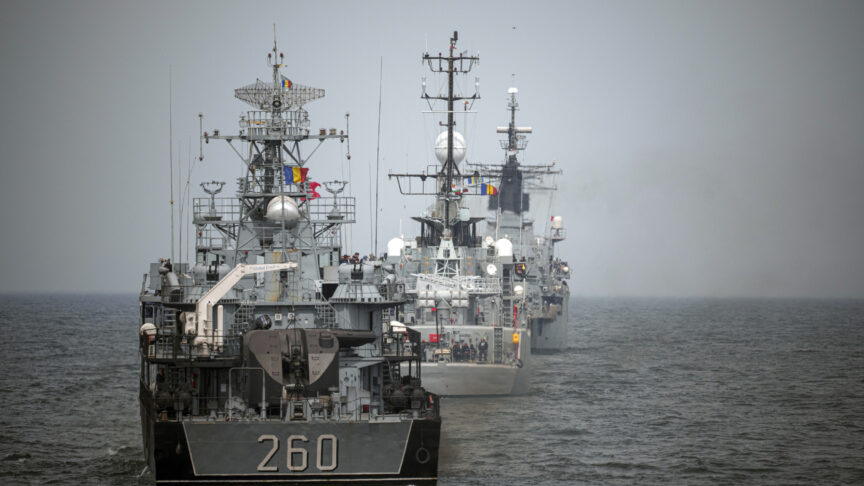Old order dying: What European decision-makers think of Russia
Vladimir Putin may find his war on Ukraine toughens up the West rather than hastens its demise
With his military losing ground in Ukraine, President Vladimir Putin is likely staking his hopes on global dynamics to carry him to victory – and finally sweep out of his way weak-willed Europeans who have summoned the courage to obstruct him. “The ongoing collapse of Western hegemony is irreversible,” he argues. Pampered Western populations cannot take the hardships of the energy crisis, the thinking goes. So European states will gradually withdraw their support for Ukraine and reach an agreement with Russia. The emerging ‘multipolar’ world will properly accommodate the Kremlin’s wishes. The isolation Russia is enduring will only be short-lived.
Yet the findings of a forthcoming ECFR policy brief suggest Putin will not have it so easy. Research into policymakers’ thinking from across the EU27 reveals that Europeans are displaying considerable unity in the face of the immense challenge, even though this resilience is of a ‘leaderless’, distributed nature. There is no consensus among European capitals about how the war might end or what sort of relationship could be built with Russia in the future – including whether to press for regime change in Moscow. But despite this uncertainty, Europeans are no longer clinging to the old international order, which Russia’s invasion bust apart. They do not have all the answers yet, but they know there is no going back and are quickly adapting. Russia’s president may, in the end, find he has helped create a formidable opponent.
Unity in crisis
Across the European Union, sanctions enjoy extensive support. The governments of most countries view them as necessary and sustainable, while a few want to go even further. And, although some media may still debate whether sanctions ‘work’, for policymaking elites throughout the EU this question is barely relevant: even those who admit economic calculations can no longer influence Putin see the sanctions as necessary.
This stands in quite some contrast to the situation after Russia’s invasion of Ukraine in 2014. Back then, the question of the efficacy of sanctions was very much a point of debate. Now, even countries Russia once regarded as friendly, such as Germany and Italy, appear to have raised the threshold to even start a discussion about ending them. The research supporting ECFR’s new policy brief suggests that, for some governments, a mere ceasefire, for instance, will not suffice to bring about a change to sanctions policy. The sole dissenting voice is that of Hungary, which is against the measures – but even figures in Budapest admit they are on their own on this, with Hungary’s former partnership with Poland also now weakening due to these cleavages.
The unity, though, is leaderless. If Germany once played a prominent role during the crises of the last decade, not least in shaping the European response to Russia during and after 2014, then now no country is corralling others to find an EU consensus. But this is not a sign of division. The popular notion of an EU divided between east and west, between hawks and doves, is not reflected in the views of policymakers, who point to broad agreement with the EU’s direction of travel. Any differences tend to concern technical details and the pace of movement. For the time being, this ‘leaderless unity’ may prove a strength, obliging all countries to work towards shared solutions and ensure stronger buy-in. Danger could lurk in the shallows, however: US leadership may currently be what binds Europeans together. Any dramatic change after the 2024 US presidential election could brutally expose the true depth of their resilience.
How to end the war
There is no question among policymakers that Russia has committed a crime they cannot simply overlook. ‘Realist’ arguments floated by some US academics – that the Western policy of NATO enlargement has brought about the crisis – appear to have no traction at all in Europe, even among those that agree the West has made some mistakes too.
But Europe currently lacks an agreed theory of victory. In most capital cities, decision-makers predict a prolonged war that ends with some form of stalemate – and the terms of any future settlement remain wholly indistinct. Policy circles hesitate to define victory, leaving that as Ukraine’s prerogative. However, some governments remain determined that the only acceptable outcome is for Ukraine to regain all of its territory, while others are open to renewed attempts at peace once Russia has withdrawn to the lines it held prior to 24 February 2022. There is also no unity on whether to press for regime change in Russia: most governments agree that this is not something the EU should set as its goal. They furthermore agree that, though Putin is the brains behind this war, even if he left the stage other elite forces in Russia would feel compelled to uphold at least some of his legacy.
A new Europe emerging
Despite unity, the road ahead looks grim for Europeans, and policymakers are alive to how difficult things could yet become. Most adhere to gloomy prognoses. However, this gloom does not translate into defeatism – rather, it fuels frantic activity, with governments working round the clock to address practical matters. And they have done so with some success: rapidly buying up gas for storage, investing in interconnectors and liquefied natural gas terminals, and adjusting fiscal arrangements to soften the blow to populations and industries. At times the appearance of muddling through prevails, with dashes of acrimony and accusations in the mix. But also emerging from this is a newly creative Europe whose leaders have recognised the definitive end of the world they knew. They mourn its loss, but the war has also freed them to think differently: in their relations with Russia they are no longer bound by the normative framework that, for years preceding February 2022, they could neither abandon, nor make work.
Emerging from this is a newly creative Europe whose leaders have recognised the definitive end of the world they knew. They mourn its loss, but the war has also freed them to think differently
And the change is irreversible. The rethink seems to have been deepest in Germany, whose decision-makers are now revisiting the fundamentals of their previous Russia policy. But the shift in mindset is taking place in most capitals. While many countries still adhere to normative rhetoric in their official statements, they are leaving it behind in their behaviour. Nominally, most countries demand the restoration of the post-cold war international order. In reality, most policymakers speaking to ECFR are clear that the page has turned and the future will be different from the past. This shift may also help Europe prepare for life in a world where the West’s relative role is smaller than it was. Putin might be careful what he wishes for: the West might indeed lose the status of the normative hegemon, as he has predicted. But, rather than hasten inevitable Western decline, Putin may have forced Europeans to master a new agility that helps them and their allies through the crisis.
The European Council on Foreign Relations does not take collective positions. ECFR publications only represent the views of their individual authors.



